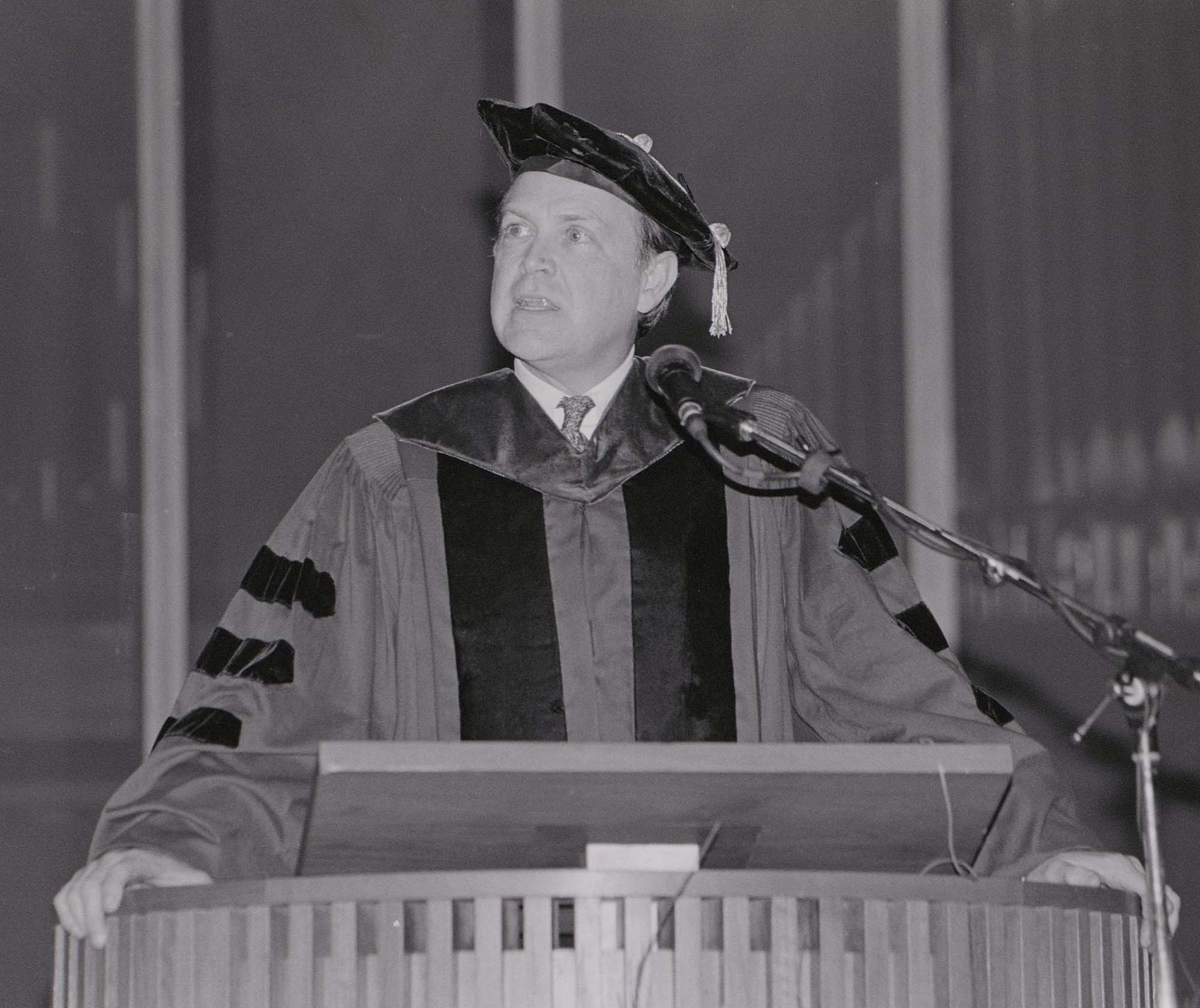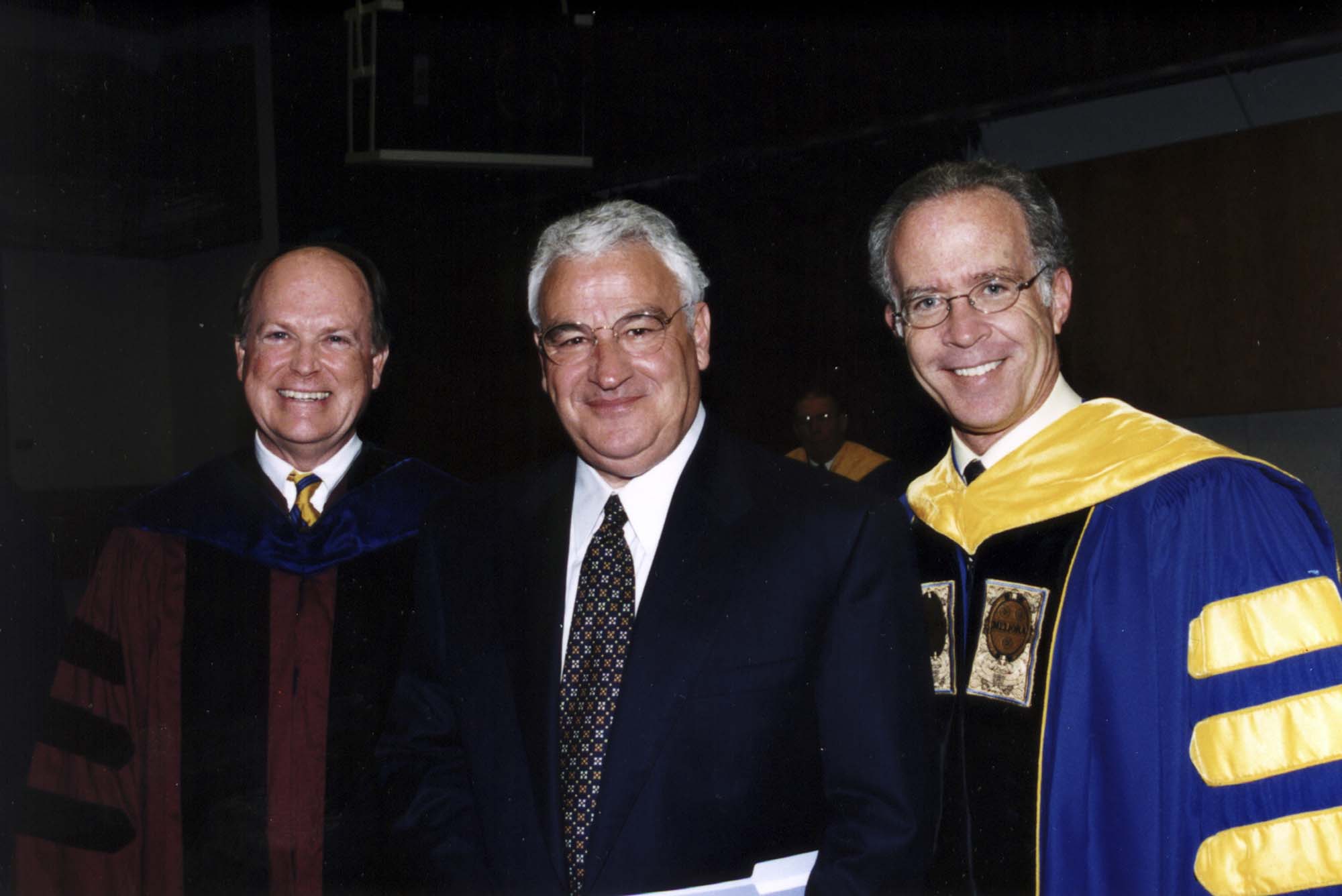Plosser’s influential work on real business cycles reshaped modern macroeconomic thought.

Charles Plosser—an accomplished economist, dedicated administrator, and longtime University of Rochester faculty member—died at the age of 76. His career spanned academia, public service, and thought leadership, leaving a lasting legacy at the University, with the Federal Reserve, and in the broader field of economics.
Born in Birmingham, Alabama, in 1948, Plosser earned a bachelor of engineering degree from Vanderbilt University before pursuing both an MBA and a PhD in economics from the University of Chicago.
Plosser joined the faculty of University’s Graduate School of Management (now Simon Business School) in 1978 after beginning his academic career at Stanford University. He was a formidable researcher whose scholarship made long-lasting contributions to macroeconomics. In particular, he was one of the founders of real business cycle theory, which emphasizes that a material fraction of fluctuations in macroeconomic variables like gross domestic product cannot be eliminated by government policy. This perspective revolutionized macroeconomic thinking in the early 1980s and remains a cornerstone for macroeconomic research and pedagogy more than forty years later.

At Simon, he was appointed as the John M. Olin Distinguished Professor of Economics and Public Policy in addition to serving as the school’s fifth dean from 1993 to 2003 (after a two-year tenure as acting dean). Plosser guided the school through a period of growth, strengthening its position as a leader in business education. He was instrumental in elevating Simon’s profile in economic research and policymaking circles, serving for two decades as coeditor of the Journal of Monetary Economics and as a member of the Shadow Open Market Committee, where he advanced thoughtful debate on monetary policy.
Career at the Philadelphia Fed and beyond
In 2006, Plosser was appointed president and chief executive officer of the Federal Reserve Bank of Philadelphia. He held this position until 2015, during which time he served on the Federal Open Market Committee through the global financial crisis and Great Recession. Known for his principled advocacy of systematic monetary policy and transparency, he was a strong proponent of the Federal Reserve’s adoption of an explicit inflation target—implemented in 2012—an achievement that continues to guide central bank policy today.
Following his retirement from the Federal Reserve, Plosser continued to share his expertise as a senior visiting fellow at Stanford University’s Hoover Institution, where he contributed to scholarship and policy discussions on central bank independence, fiscal responsibility, and the long-term health of the US economy.
Teacher, mentor, and friend

Beyond his many professional achievements, Plosser was known for his warmth, generosity, and love of teaching. He approached life with a curious mind and a gift for explaining complex ideas with clarity.
Posser enjoyed skiing, tennis, and traveling with his wife, Janet, with whom he shared nearly five decades of marriage. His family, including three children and seven grandchildren, were his greatest joy.
His impact on Simon and the University, the Federal Reserve System, and the global economics community cannot be overstated. Plosser leaves behind a legacy of intellectual rigor, integrity, and service to both his students and his country.



